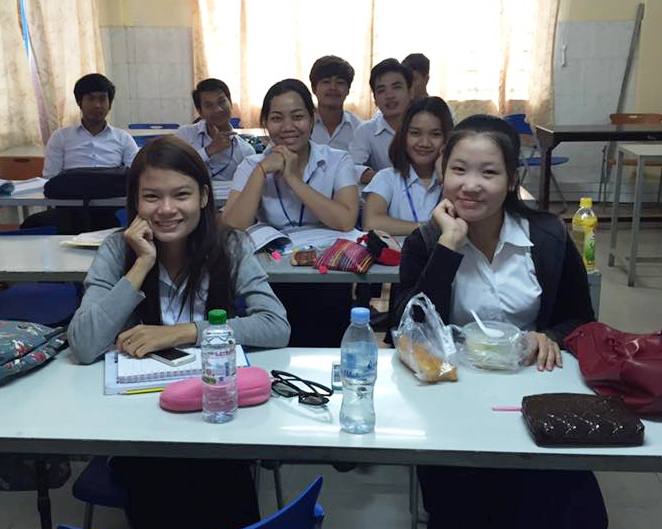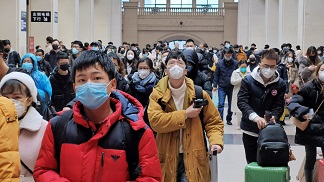Property valuation is one of the factors that helps determine whether buying a property asset will either enhance or depreciate the value of an investor’s portfolio. Valuation is often done by skilled professionals in the real estate industry to help protect the interest of investors and developers for long-term success.
Since Cambodia is relatively new in terms of developing policies to promote proper valuation standards, it still has a few things in need of improvement. This was a topic that was addressed in-depth during a business luncheon entitled, “Addressing the Current Gaps” - which brought key speakers together to provide clarity among the various major stakeholders in the industry.
Speakers included ASEAN Manager of the Royal Institution of Chartered Surveyors (RICS), Salim Aslam, President of the Cambodian Valuers and Estate Agents Association (CVEA), Kim Heang, and Country Manager of Knight Frank Cambodia, Ross Wheble.
Macroeconomic and Banking Standpoint:
Before anything else, David Marshall, Head of Multinational Corporation and Financial Institutions of ANZ Royal Banks, discussed property valuation from a banking perspective. He states that valuations play a key role in the lending process of the country.
Marshall explains, “One of the pitfalls in Cambodian property valuation that I’ve seen is there could potentially be some collusion with valuers in assessing the value of the property, inflating the value, and then the banks lending more money on that property than they should have.”
Marshall stresses that, “in order for banks to protect their clients, there is an obligation to ensure that there is minimal loss during investment transactions; and property valuation serves as that safety net for both parties.”
Ethical Practices and Transparency Issues:
In terms of developing a guideline for quality assessment, Aslam explains that many countries such as Singapore and Malaysia have adopted the valuation standards of the Red Book which have been developed by RICS and widely used in the US and UK.
However, he clarifies that this is not something that has been applied in Cambodia as of yet because there are issues of compatibility with the type of government and current economic setup of the country.
Heang substantiates this by saying that it is not impossible to integrate this system full at present, but it must be tailored to fit the unique needs of Cambodia at this point of time. “What can be done in Malaysia and Singapore now can apply to Cambodia, but we need to check if it needs something extra to work," he says.
He adds that a law on real estate is already being discussed and might be enacted by 2018 to help move towards the end goal of improved valuation policies.
When asked how to bring international valuation standards to Cambodia though, Wheble answers by saying that there is a skills gap in terms of educational infrastructure and that there are no real estate qualifications available in-country at the moment. This becomes an immediate issue in accordance with international standards.
He believes “with more and more of these training sessions and also in terms of exchanging knowledge between ourselves and through the CVEA,” this will soon improve, especially with the efforts of companies like RICS and Knight Frank who are willing to participate in the development of a better education system for real estate professionals in Cambodia, inside and outside of their businesses direct interests.
Calls for Education:
Since Cambodia has a shortage of programs to address the gap of knowledge in the valuation industry, Aslam says that, “knowledge, training, learning, and education is one way to solve the gap of expertise,” because Cambodia is a young country in terms of organization. He also says that it may take some time to address these gaps, but as long as efforts are being done, this disparity will soon shrink.
Aslam adds that local organizations like CVEA will play a big part in harmonizing this gap to adopt certain Cambodian property valuation standards. Wheble also states that, “promoting real estate as a profession in and of itself needs to become a focus for Cambodia.” New job applicants in the industry have generally gone to university and gotten a degree in finance, law or banking. “What we really need to promote is real estate as a long-term professional career path,” says Wheble.
According to Kim Heang though, there is already a five-year plan for CVEA to help in this area. He states that three universities are willing to offer a faculty for a bachelor’s degree in real estate and we will see four-year courses with 30 to 50 subjects being offered soon. The University of Technology in Malaysia is also interested in working with universities in Cambodia to bridge the gap for a two-year associate valuation degree. This will affect how the real estate industry professionals will conduct their business because, as education increases, regulations will certainly evolve and have stricter implementation as well.

Insurance and Valuation:
On the topic of insurance, Aslam explains that valuers have a pre-requisite of professional indemnity insurance, as the Ministry of Economy and Finance has now released a new regulation requiring this type of insurance coverage.
Aslam continues by saying that Cambodian property valuation can be subjective and valuers may end up with different figures based on individual research. In these cases, insurance becomes important as it protects the valuers and their client should there be errors or lapses on their part.
According to Kim Heang though, if you’re working with international investors or buyers, some do not require you to have this insurance because they trust you enough. These include buyers from Taiwan and Vietnam.
He also says that if you’re very careful with valuation, the insurance seems to matter less. He goes so far as to say that having no insurance can actually help valuers at times because they have nothing to fall back on, and will then be less negligent. But he clarifies that having insurance can actually be good for competition because buyers feel safer with companies that do have insurance.
Government support:
On the question of whether the government should establish a governing body to overlook issues with real estate and valuation, Heang responds by explaining that there are actually people who do that right now, but there are less than ten under the general real estate and industry department who are able to do it.
This is a cause for concern as there are thousands of ongoing and new projects in need of attention. This sometimes makes the management of all issues impossible for the current government department. Although, Heang says that recently the CVEA has served as the right hand for the government whenever possible in this field.
Data collection:
Another issue Cambodia has with valuation standards is that there is no central database for valuation transactions to serve as the basis for valuers to gauge relative values across the market. However, individual international firms like Knight Frank do their own data gathering through their research teams, using collected sales data.
When asked why these firms are not teaming up with local organizations like CVEA in order to form a singular data, Wheble explains that they are actually open to doing so, but not all companies are as open to becoming transparent with their data as Knight Frank.
He says that this is stopping progress on this front. Kim Heang says this is due to tax regulation. Some companies do not pay their tax completely and that’s why these companies choose to remain silent with sold price data. But if this is not the case, he says that the CVEA can do the data collection and analysis to be able to create a more centralized database. Having this reference will then affect what professionals use for valuation, as comparable data will be easier to obtain.
Marshall closed the luncheon by saying that Cambodia still has much to do for Cambodian property valuation, but they “know that the industry is moving towards more professionalism.” And certainly this step towards a more organized and systematic future will have positive effects on how transactions will be made in the Cambodian real estate industry, and sustainable growth for the greater economy moving forward.





Comments